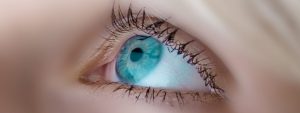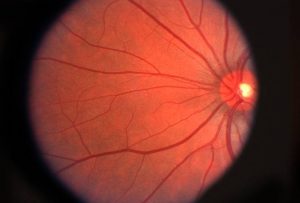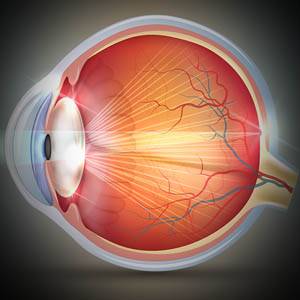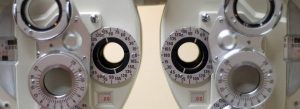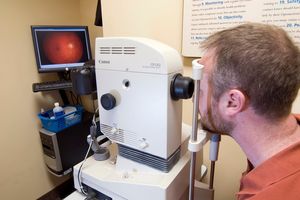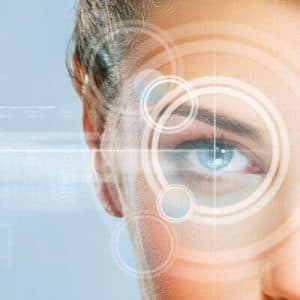Nearsighted or Farsighted?
Have you been told you are ‘nearsighted’ or ‘farsighted’ but not totally sure what they mean? Both of these may require you to rely on
Read MoreCataracts: Top 5 Myths and Facts
Have you been told you have cataracts, but not sure about the myths and facts? Here are the top 5 myths and facts about cataracts.
Read MoreCan Sugar Affect Eye Health?
We all enjoy a sweet treat now and then, but too much sugar in our diet can come at a price. Here’s how eating excessive
Read MoreWhich Foods Help Dry Eyes?
Over 50% of all adults experience dry eyes. Other than dryness of the eye, symptoms of dry eye include burning, irritation and grittiness. While studies
Read MoreEye Floaters: Should I Worry?
Eye floaters can be a sign of serious disease, but now eye doctors can successfully treat with a range of very effective options. What are
Read MoreTinted Lenses for Color Blindness
An estimated 1 in 12 men and 1 in 200 women has some degree of color blindness. Color blindness is not an actual blindness, but
Read MoreGuide to High-Index Lenses
High-index lenses are eyeglass lenses that are designed to be thinner and lighter than regular lenses. They are generally recommended for people who have significantly high refractive errors and strong prescriptions for nearsightedness, farsightedness, or astigmatism.
Read MoreGlass or Plastic: Which Type of Lens Should You Choose?
Eyeglasses date back to the 13th century when glass blown lenses were placed into leather or wooden frames and held in front of the eyes
Read MoreDo I Need Coatings on My Lenses?
Wondering if lens coatings are absolutely necessary or just an added bonus? When purchasing new eyeglasses, many eyecare professionals will recommend adding a coating to
Read MoreCOVID-19 and Computer Vision Syndrome
Author: Dr. Alex Andrich and Patti Andrich The Vision Development Team Coping with COVID-19 may be affecting your vision The American Optometric Association (AOA) defines
Read MoreE-Learning Without Eyestrain: Part 2
Author: Dr. Nate Bonilla-Warford Bright Eyes Family Vision Care A visual health guide for students during the COVID-19 pandemic If your child is e-learning, and
Read MoreEye Anatomy: External Parts of the Eye
The external parts of the eye work together to protect the eye and all of its internal structures. The following ocular structures are located on
Read MoreEye Anatomy: The Back of the Eye
Did you know that the back of the eye is responsible for transferring visual information from the eye to the brain? In order to see
Read MoreHow Does the Eye Work?
If 80% of everything we learn comes through our eyes – the question is, how? The eye contains over two million working parts and is considered the second most complex organ in the body, the most complex is the brain. The inner structures of the eye all work together to produce an image that your brain interprets.
Read MoreWhy Does Diabetes Cause Blurry Vision?
If you have diabetes, high blood sugar levels may be the cause of your blurry vision. Blurred vision, or any changes to your vision can be quite concerning. But before you panic, understand that blurry vision is commonly associated with diabetes and can sometimes just be a temporary problem.
Read More4 Ways Diabetes Can Affect Your Vision
Diabetes can increase your risk of eye disease and permanent vision loss. Diabetes affects the way your body regulates glucose (sugar), and prevents the glucose
Read MoreA Deeper Understanding of Diabetic Retinopathy
Diabetic retinopathy is the leading cause of vision loss among people with diabetes. If you have been diagnosed with diabetes, it is critical to ensure
Read MoreAnxiety Activated by Reflex Codes
Author: Dr. Alex and Patti Andrich The Vision Development Team If you frequently experience bouts of anxiety, you are not alone. According to the Anxiety
Read MoreConcussion and Vision
Author: Dr. Aaron Nichols Excel Neuro-Optometric Clinic The term concussion has become increasingly popular in the last several decades. The research behind the causes and
Read MoreOn the Long Road to Recovery: Motion Sickness and TBI
Author: Dr. Aaron Nichols Excel Neuro-Optometric Clinic Do you experience motion sickness while driving a car or motorcycle, or riding as a passenger? Motion sickness
Read MoreHow to Insert and Remove Scleral Lenses
New to scleral lenses? Here’s a beginner’s guide to inserting and removing scleral lenses. Scleral lenses are larger than the traditional hard or rigid gas
Read MoreHow to Insert and Remove Hard Contact Lenses
Below is a helpful guide on how to insert and remove your rigid gas permeable (RGP) lenses using the most common, easy to follow methods. This
Read MoreCommon Contact Lens Problems
While wearing contact lenses is a safe alternative to eyeglasses, they can come with problems that you may not expect— especially if you are a new contact lens wearer. Here are some of the most common contact lens problems, and how to avoid them.
Read MoreThe Contact Lens Exam
Over 22 percent of people who wear eyeglasses enjoy the benefits of also using contact lenses. If you are thinking about contact lenses, a contact
Read MoreGuide to Hard Contact Lenses
While soft contact lenses have become quite popular in recent years, hard contact lenses are actually preferred by many people with specific vision conditions
Read MoreGuide to Soft Contact Lenses
Approximately 90 percent of contact lens wearers prefer soft contact lenses. There are many different options when it comes to soft contact lenses. While your optometrist can help you to narrow down your choices— usually dependent on your prescription and personal lifestyle, it is important to be aware of the advantages and disadvantages of each type of lens
Read More5 Things Parents Should Know About Visual Development
Author: Dr. Ingryd Lorenzana Brain Vision Institute 1. The brain is the only organ that is not fully developed at birth, and its function builds
Read MoreHow to Insert and Remove Soft Contact Lenses
If you are a new contact wearer, you may be a bit nervous about inserting and removing your new lenses. While inserting and removing your
Read MoreThe Do’s and Don’ts of Wearing Contact Lenses
Wearing contact lenses has many advantages when compared to eyeglasses. However, since the lenses sit directly on your eyes, it is crucial to be aware
Read MoreVision Therapy: Glossary of Terms
Have you heard some terms from friends, family or even your eye doctor, that you are not sure what they mean? Here is a guide
Read MoreHow Is My Optical Prescription Measured?
Whether you are visiting your eye doctor for your annual checkup, or have noticed that your vision is not as sharp as it used to
Read MoreWhat Is a Visual Acuity Test?
Your visual acuity, or clarity of vision, represents how well you are able to see objects or images at a given distance. Visual acuity is
Read MoreWhy Is Eye Pressure Important?
Have you heard your eye doctor mention ‘eye pressure’, but you are not really sure what it means? Eye pressure, also called intraocular pressure (IOP), refers to the fluid pressure inside the eye. Maintaining a healthy IOP will help to preserve your vision and prevent vision loss from eye conditions such as glaucoma, a sight-threatening ocular disease.
Read MoreOcular Migraines
Ocular migraines are a rare form of migraines, affecting 1 in 200 migraine sufferers. What is a ocular migraine? A visual migraine, also known as
Read MoreDry Macular Degeneration (AMD)
Dry AMD accounts for 80-90 percent of all AMD cases. Macular degeneration, also known as age-related macular degeneration (AMD), is an eye disease that occurs as a result of permanent damage to the macula, the center of the retina. Dry AMD causes loss of central vision and the ability to see fine details
Read MoreHow to Stimulate Your Child’s Vision
Healthy vision development is a crucial part of childhood development, as it enables timely achievements of all developmental milestones. The first three years of life will concentrate on many milestone achievements, among the most important, is your child’s vision.
Read MoreDiabetic Macular Edema
Diabetic macular edema occurs when damaged blood vessels from the retina leak fluid into the macula, the center of the retina. Diabetic macular edema causes the macula to swell and thicken, resulting in distorted vision.
Read MoreWill Cataract Surgery Give Me 20/20 Vision?
How does cataract surgery help to improve vision? As cataracts develop and cloud the eye’s natural lens, significant visual distortions begin to impact the ability
Read MoreWhat is Sports Vision?
Do you feel like your sports performance does not measure up to your athletic ability? You may be suffering from a vision problem, a vision problem may actually be causing the difficulty you are experiencing while participating in sports activities.
Read MoreLazy Eye FAQs
These are the 12 most frequent questions asked to vision therapy eye doctors on lazy eye. You may easily find answers to your questions below. If you still have questions, contact your nearest eye doctor experienced in children’s vision, lazy eyes and vision therapy.
Read MoreGuide to Eye Turns
Eye turns, are also known as strabismus, and affect over 1 in 20 babies and toddlers. With early detection and eye care treatment, with eyeglasses and vision therapy, the eye turn can often be resolved, without relying on complicated eye surgeries.
Read MoreVision Development and Milestones
It is important to watch your baby’s development to ensure they reach their milestones. A child’s vision is a complex combination of the brain, the eyes and the vast array of nerves that connect them. At birth, this visual system is still immature and continues to develop throughout the child’s early years.
Read MoreA Guide to Eye Infections
Up to 1 in 8 of all children will have an eye infection each year. Parents should be aware of the symptoms of an eye infection to enable prompt identification and treatment. Eye infections can be serious and may cause permanent vision loss. Effective treatment is always needed, especially when bacteria, viruses, or fungi invade the eye or the surrounding areas. The most common eye infections that affect children are called Viral and Bacterial Conjunctivitis— both highly contagious.
Read MoreVision Therapy
Just checking how exerpts work
Read MoreVision, Dizziness and Imbalance
Many people experience dizziness or balance issues following a mild concussion or other traumatic brain injury (TBI). Dizziness or imbalance can be caused by a
Read MoreShould I See an Optometrist or Ophthalmologist?
Your eye care team Ophthalmologists, optometrists and opticians are the three main professionals included on the ‘eye care team’. While each profession plays an important
Read MoreAdvanced Diagnostics
Many ocular diseases develop without any noticeable symptoms. Advanced diagnostic equipment allows doctors to detect signs of ocular disease before symptoms are present —preventing significant and permanent impact on the vision, and enabling early treatment to best manage the disease.
Read MoreChoosing an Optometrist
When deciding on an eye doctor it is important to look for a reputable optometry practice that will meet all of your ocular health and vision needs. A qualified eye care professional will examine, treat, manage, and monitor your ocular health and vision, ensuring you enjoy a life of clear vision.
Read MorePrimary Eye Care
Home > Primary Eye Care Primary Eye Care Why are regular eye exams important? Can eye disease be prevented? What are the signs and symptoms
Read More











